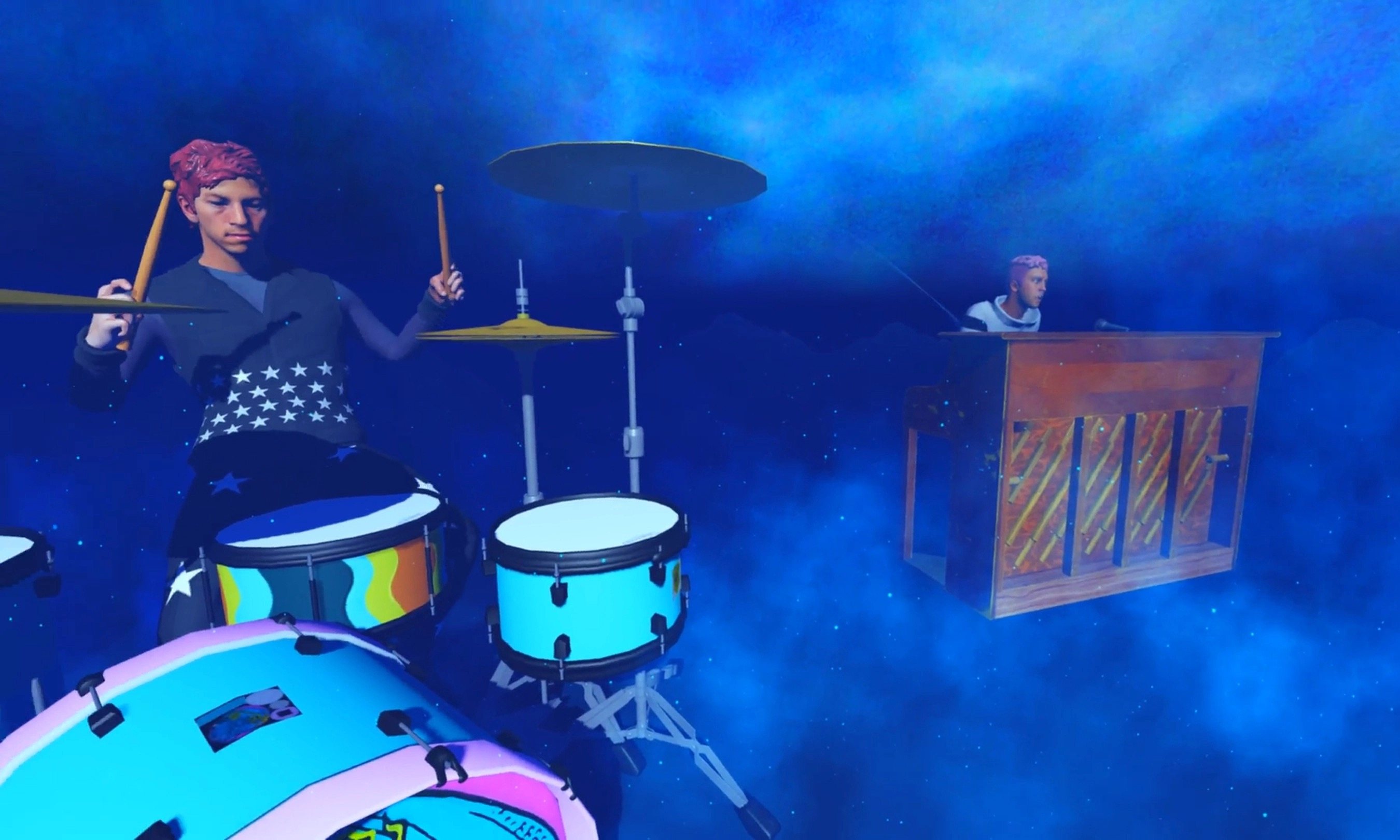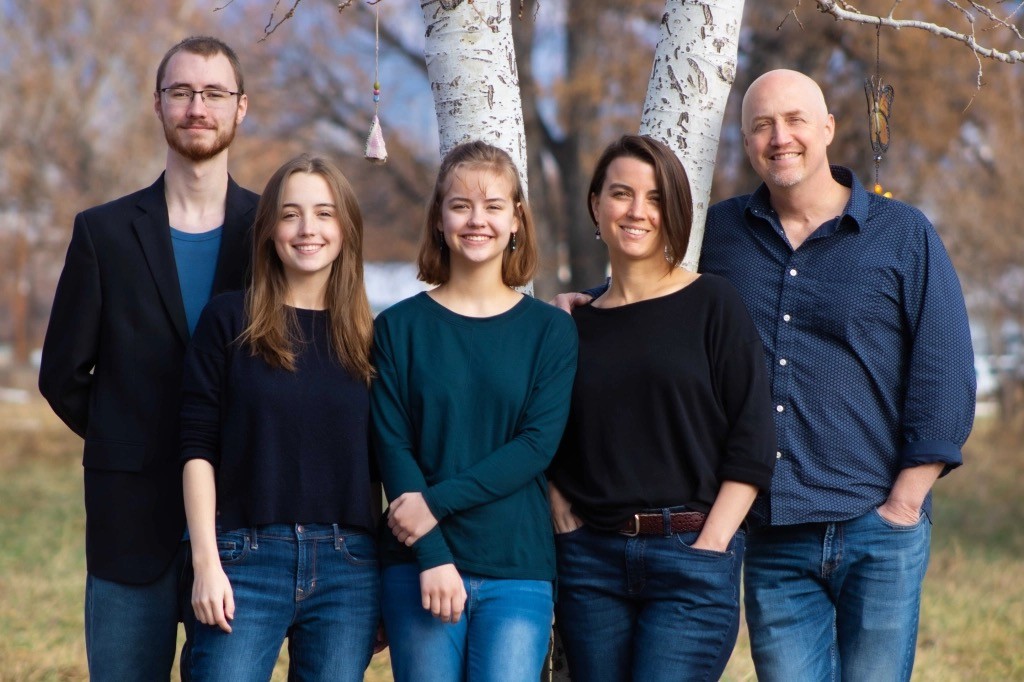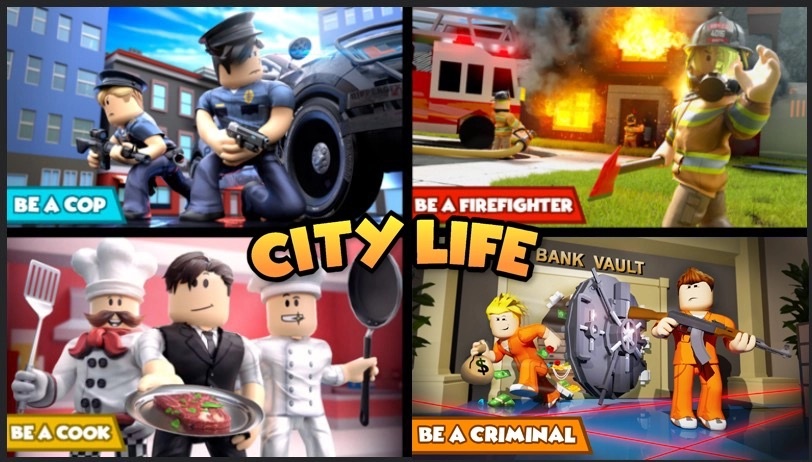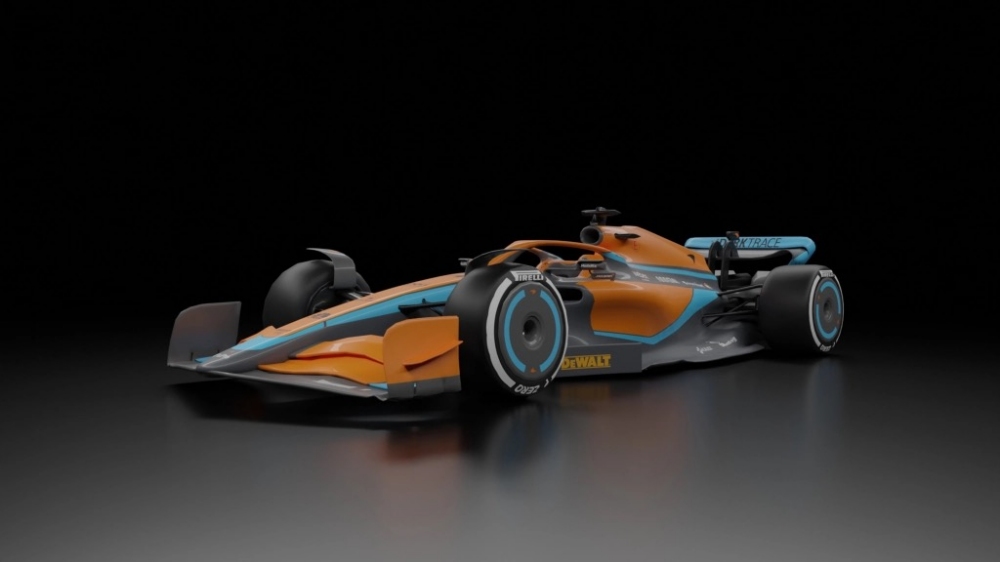
幾年前,一位娛樂行業的客戶找到馬庫斯·霍姆斯特姆和他位于斯德哥爾摩的游戲工作室Gang Sweden,委托其為Roblox平臺創建一些內容。Roblox平臺是一個元宇宙風格的游戲和娛樂合集,使用方塊圖像,很受孩子們歡迎。
這次任務聽起來毫無難度:霍姆斯特姆團隊的成員在所謂的3A游戲制作方面擁有許多經驗,有些人曾參與過一些主流游戲大作的開發,例如《重返德軍總部》(Return to Castle Wolfenstein)和《戰錘:末世鼠疫》(Warhammer: Vermintide)等,而Roblox上的很多內容都是由該平臺自己的社區打造。霍姆斯特姆回憶道:“我們以為會非常順利,因為競爭很少。”
結果卻大相徑庭。霍姆斯特姆承認:“項目徹底失敗。沒有人喜歡我們的游戲。”Gang Sweden通過這次慘痛教訓了解到,Roblox是一個奇特的平臺。
對于新手而言,該工作室的游戲主要以目標和競爭為導向,就像是一款純粹的游戲。但許多青少年用戶使用Roblox平臺是為了社交,幾乎將其當成了社交網絡;事實證明,許多人在元宇宙中隨意游蕩。與此同時,Gang的游戲卻很復雜,許多內容需要用戶自己探索。但Roblox的年輕用戶更喜歡根據清晰的指令和活動,親手創建內容。該游戲工作室意識到,Roblox的受眾之所以使用該平臺,是因為它能滿足用戶的期待。
而且這批受眾不容忽視:2022年第1季度,平均每天有5,410萬名活躍用戶,在該平臺共花費了118億個小時。許多人花費用美元購買的平臺貨幣Robux,獲取體驗和數字物品,用于個性化改造自己的虛擬形象或虛擬居住空間。最值得關注的是,有超過1,000萬Roblox用戶曾為其他用戶創建體驗和游戲,事實上這類用戶的數量接近3,000萬。許多用戶通過自己的作品獲得收入,2021年創作者的收入總計達到5.38億美元。雖然他們大都是在平臺上成長起來的年輕人,但這些用戶/開發者對于Roblox生態系統的重要性不容忽視。他們實際上就是生態系統的組成部分。
雖然Roblox在社區培養方面取得了令人矚目的成果,但該公司依舊未能實現盈利。2021年,該公司收入19.2億美元,虧損約4.9億美元。隨著疫情帶來的熱潮出現降溫跡象,華爾街對Roblox的故事失去了熱情;其股價較11月的最高點下跌超過一半。
盡管如此,Gang等公司以及大批自主創作者并沒有因此退縮,他們繼續在該平臺上積極創作。事實上,Roblox的生態系統變得更加穩健:一些獨立開發者正在發展成專業工作室,而有經驗的游戲制作商正在成為Roblox專家,并且有些獲得了風險投資。

Gang Sweden目前僅專注于為Roblox平臺開發游戲。工作室有67名員工,已經開發了超過15款游戲,包括每天有數百萬玩家在線的誠意大作《強人模擬器》(Strongman Simulator)(在游戲中,用戶進入一個類似于健身房的虛擬環境,通過各種動作獲取力量和能量分)。其游戲的收入來源是出售升級和虛擬服裝與裝備等。公司還會為客戶創建定制環境,如Vans和超級跑車制造商邁凱倫(McLaren)等。
還有許多工作室在該平臺上也采取了類似模式。從Hello Kitty咖啡廳到Chipotle的“玉米餅制作”游戲再到Spotify的“音樂主題島嶼”以及“古馳小鎮”,這些由品牌商贊助的體驗成為該生態系統的常規特征。(這種變化也受到了廣告監管機構的批評。)
結果就是,Gang Sweden成為成功在Roblox上找到盈利途徑的許多第三方之一。霍姆斯特姆表示,Gang Sweden已實現盈利,收入快速增長。
問題是,Roblox能否也找到盈利的途徑。
Roblox似乎最近才走紅,它在2021年3月上市,但實際上這家公司成立于2004年。更新鮮的是其當前的經營模式。Roblox的經營模式經過全面進化,致力于鼓勵第三方開發者,他們可以是在臥室里業余創作的富有創意的青少年,也可能是有大量資深游戲業者的工作室。現在注冊一個Roblox賬戶,你會看到豐富多彩的選擇,幫助你探索其元宇宙。但由Roblox自身創作的選擇幾乎為零。
當然你也可以說Roblox創造了一切。設計恰當的數字建造工具,制定有效的激勵措施,積極培養并不斷壯大開發者社區,本身也是一種創意。而且這個過程經過了數年試驗和方向調整。
Roblox高級主管兼全球開發者社區總監賈斯汀·蘇澤表示,最早的Roblox就像是一款“學習工具”。作為一款物理模擬器,它吸引了12至14歲“有怪癖的孩子”(蘇澤將其作為一種稱贊),兒童可以通過其中的數字模塊創作物品和空間。Roblox嘗試過廣告模式,但該公司最終認為,這種模式與正在成形的用戶社區格格不入。
相反,Roblox加大了對社區的培養,并且相信人們會在元宇宙中消費。Roblox實際上采用了現在已經眾所周知的“創作者經濟”模式,開始更積極地鼓勵開發者在平臺上開發可變現的體驗,并從中賺取抽成。當一名Roblox用戶為其虛擬形象購買裝備裝飾虛擬空間時,公司會收取約30%的“平臺服務費”。
2015年,Roblox啟動了所謂的“加速器”計劃,通過新人訓練營的形式,幫助精心選拔出的開發者成長。這些開發者都誕生于該平臺。該計劃目前每年為約40名開發者提供專業培訓,以及與Roblox的工程師和其他內部人士直接溝通的渠道。公司最初鼓勵開發某些類型的游戲和體驗,但很快改變策略,開始支持開發者天馬行空地進行創作。蘇澤堅稱:“我們只是給開發者提供一套工具。我們并不關心他們用它來蓋房子、造窩棚還是做一只鞋子,這一切都由開發者自己決定。”(事實上,Roblox后來澄清公司對開發者有一些限制:公司制定了精心設計的社區指導方針和家長控制設置,以保證平臺對年輕用戶的安全性和適宜性。)最近,Roblox啟動了一項更加開放的“Game Fund”計劃,將向開發者發放資助共計2,500萬美元。
有些加速器計劃的畢業生已經創辦了自己的工作室。Simple Games的創始人內森·克萊門斯就是其中之一。內森今年21歲,他的合伙人包括他的兩個妹妹內奧米(18歲)和瑞秋(15歲)以及父母。他們與一個外包程序員團隊合作,開發了約15款游戲,包括熱門角色扮演游戲《城市生活》(City Life),總收入達到小七位數。(克萊門斯沒有透露詳細數據,但他表示Simple Games向慈善事業捐款超過15萬美元。)
克萊門斯坦言:“我從來沒有把Roblox當做游戲。”事實上,他從來都不是一名游戲玩家。但他在約14歲的時候發現了這個平臺,更準確地說,發現了Roblox Studio建造工具。當時他使用谷歌SketchUp等程序,已經學會了3D建模和計算機輔助設計(CAD)渲染。他可以利用這些技能,通過開發Roblox游戲賺錢。后來他發現可以與程序員合作開發自己的游戲。他說道:“我們從那時候才了解到市場規模之龐大。”
內森的父母杰夫和香儂一直在關注著他,隨著他的事業不斷壯大,他們開始直接參與,主要負責業務方面。內奧米在15歲時加入工作室開發自己的項目;她的最新作品《分層服裝》(Layered Clothing)是一款虛擬化妝比賽游戲,利用了Roblox一項優化虛擬形象裝扮結果的新功能。瑞秋在12歲左右加入工作室。她喜歡數字藝術,精通Procreate等程序。


內森形容參加加速器計劃的經歷對他具有顛覆性的意義。18歲的時候,在Roblox的資助下,他在加州用三個月時間,通過課程和報告,學習如何充分利用該平臺,學習的內容涵蓋了交互設計到財務等方方面面。他說:“那段時間有些混亂,但也讓我覺得非常神奇。在那之后,我開始全身心投入到Roblox平臺。”
像內森一樣的人大有人在。事實上,Roblox生態系統經過許多年循序漸進的緩慢成長,在過去兩年似乎已經達到了創作者經濟公司渴望的良性飛輪效應:越多人能夠通過在平臺上開發作品維持生計甚至成為百萬富翁,平臺就能吸引越多用戶;隨著用戶參與度的提升,平臺對于開發者就更有吸引力。目前,Roblox文化的熱度超過了平臺上的實際參與度,有以Roblox為導向的YouTube用戶和出版物,以及Twitch解說用戶,公司還舉辦了年度開發者活動,幫助創作者拓展人脈,建立新的關系(達成更多交易)。
既然如此,為什么Roblox的收入依舊為負?Roblox首席商務官克雷格·多納托認為,這個問題是錯誤的。他說道:“我們在內部不會討論收入和盈利能力。”相反,公司關注的是“用戶消費”和現金流量。當用戶購買平臺貨幣Robux時,Roblox可收到現金。(成本取決于用戶購買的數量以及是否選擇“訂閱”服務,但用戶用大約10美元基本可以購買800枚Robux。訂閱服務會每個月為用戶發送新的Robux賬單。)
用戶通常會用這些Robux購買體驗或虛擬物品,收入被分攤到用戶購買物品的整個生命周期;例如一件虛擬襯衫的價格可能在25個月里進行攤銷。多納托表示,結果就是雖然這種收入增長緩慢,但公司實現了正向現金流:“我們銀行賬戶里的資金在不斷增多而不是減少。”
質疑者提到了自疫情封鎖逐步解除以來,Roblox數據的不斷下滑:總預估用戶消費較一年前下降了兩個百分點,用戶平均消費額也有所下滑。分析師下調了對該公司的收入預估,甚至有人公開表示看跌該公司。例如,高盛(Goldman Sachs)分析師埃里克·謝里登最近將對該公司股票的前景評級從買入下調至中立,認為公司短期內存在用戶增長持續放緩的可能;美國銀行(Bank of America)分析師奧馬爾·德蘇基最近大幅下調了Roblox股票的目標價位。
但Roblox似乎認為疫情期間的大幅增長和后續的降溫是公司增長過程中的反常時刻。而且沒有任何跡象表明公司將改變竭盡所能促進增長的策略,例如投資平臺、擴充服務器以及不多擴大對創作者/內容的飛輪效應等,這也是最重要的一點。公司真正的想法是,最終有足夠多的用戶在平臺上進行足夠多的消費,使“用戶消費”帶來的收入能夠超過平臺擴張和維護的成本,從而實現傳統意義上的盈利。(就連一些Roblox的華爾街批評者也看好公司的長期前景,尤其是對于堅信元宇宙潛力的人而言。)
在這方面,該公司有兩條策略尤其值得關注。一條策略是在2019年推出的“基于參與度”向開發者付費的模式。新手創作者可能需要時間積累足夠多的受眾,才能真正將一款游戲或一種體驗變現。而基于參與度的付費可以作為對創作者的激勵,或者權宜之計。開發者甚至不需要主動爭取,資金會自動出現在他們的Robux賬戶中。多納托表示:“我們希望開發者能夠憑借投入的時間獲得收入。”2021年,Roblox共發放了8,610萬美元的參與度付費,約占向開發者付費總額的16%。
其次,Roblox對于平臺上的品牌滲透,似乎選擇了一種中立的態度。這是非常驚人的,因為品牌滲透不僅實實在在發生了,而且其發生的頻率和覆蓋范圍將不斷擴大,并將有更大的變現潛力。但Roblox目前似乎并不打算直接與品牌商合作;相反,公司鼓勵品牌商與開發者合作,無論是像克萊門斯家族一樣從平臺上成長起來的開發者,還是Gang這樣的外部專業開發者。

多納托表示,讓這種動態在生態系統內自由發揮,使品牌體驗根據自身的優缺點經歷起起落落,比建立更直接的合作伙伴關系更容易。事實上,作為開發者負責人的蘇澤表示,《收養我吧》(Adopt Me)(Roblox上最熱門的游戲之一,玩家在游戲中可以照顧和交換虛擬寵物)這款游戲中有許多與迪士尼(Disney)有關的品牌“植入”。他表示,Roblox更喜歡這種模式,即有品牌參與,但公司不擔任直接中間人。多納托也表示:“我們只是努力創建一個公平的競爭環境。”
公司還有第三條策略,雖然到目前為止產生的影響較小,但可能對Roblox的未來具有至關重要的意義。蘇澤指出,Roblox用戶的平均年齡正在慢慢小幅增長:52%的用戶目前超過13歲。等著用戶年齡增長,或者蘇澤所說的“年齡不可知論”,成為公司的目標。然后公司可以鼓勵用戶嘗試瑜伽空間等,或者現實的旅行導向體驗。甚至演唱會和DJ表演等數字活動也能吸引年齡稍大的青少年用戶。(公司表示17至24歲的年輕人是增長最快的用戶群體。)
公司重視這一點的理由顯而易見:作為一家公司,Roblox依賴用戶消費,而要依靠兒童受眾實現這個目標是一項復雜的挑戰。未成年用戶需要父母參與注冊Robux賬戶,但除此之外,成年人的監督參差不齊,留下了發生可疑交易的可能性。4月,非營利組織廣告中的真相(Truth In Advertising)向聯邦貿易委員會(Federal Trade Commission)投訴,指責Roblox“通過多種方式允許將廣告與有機內容秘密關聯。”與此同時,該平臺在最近的一次流行文化事件中似乎扮演了不幸的角色。金·卡戴珊6歲的兒子最近在Roblox上偶然發現的一條內容,提到了卡戴珊和前男友的性愛錄像帶。(據報道,該公司刪除了提及這個錄像帶的“體驗”,并封殺了其創作者。)騙人的機器人程序也是一個問題。Roblox為一項用于發現假冒虛擬物品的技術提交了專利申請。
即使是合法銷售也會引發人們的擔憂,因為銷售的對象是未成年消費者,他們的大腦尚未發育完全。有些活動有意吸引人們在該平臺上大量消費。據媒體報道,Lil Nas X在Roblox上舉辦的一場活動的數字商品銷售額接近1,000萬美元。某些稀有物品的價格高達數千枚Robux。這些物品之所以稀有是因為其在特定游戲中的實用性,或者因為其身份問題,將其稀缺性與現實世界的價值掛鉤。
作家、游戲設計師和批評家以及華盛頓大學圣路易斯分校(Washington University in St. Louis)傳媒與計算機科學教授伊恩·博格斯特表示:“在Roblox上有很多欺騙消費者的機會,尤其是兒童。”比如迫使消費者購買“禮物”,或者以低于真實價值的價格賣掉他們的數字物品等。
但博格斯特發現,從《口袋妖怪》(Pokémon)狂熱到《堡壘之夜》(Fortnite)引發的擔憂,這類暴力游戲在家長當中造成的恐慌,并沒有對Roblox產生影響。或許這與Roblox方方正正、毫無威脅甚至有些笨重的審美有關。博格斯特表示:“或許家長認為:‘它可能不是很重要。因為重要的東西應該看起來更精致。”
Roblox提到其內容審查工作稱,公司在內容審查方面付出了大量努力,這也是公司的主要支出項目之一。此外,筆者采訪過的Roblox高管和開發者都提到了平臺的“社區”環境,因為這是一個基本上由用戶創造的世界,維持一個誠信、安全的環境符合用戶的既得利益。
Roblox最終也需要維持這樣一個環境:公司幾乎在所有層面,都將未來寄托于其培養的生態系統的創造力、敏銳度和道德原則。對傳統收益不屑一顧這種策略并不能持久,而且華爾街似乎正在失去耐心。但正如多納托所說,這家有18年歷史的公司相信,現在強勁的現金流量未來將演變成利潤。“我們才剛剛起步。”(財富中文網)
翻譯:劉進龍
審校:汪皓
幾年前,一位娛樂行業的客戶找到馬庫斯·霍姆斯特姆和他位于斯德哥爾摩的游戲工作室Gang Sweden,委托其為Roblox平臺創建一些內容。Roblox平臺是一個元宇宙風格的游戲和娛樂合集,使用方塊圖像,很受孩子們歡迎。
這次任務聽起來毫無難度:霍姆斯特姆團隊的成員在所謂的3A游戲制作方面擁有許多經驗,有些人曾參與過一些主流游戲大作的開發,例如《重返德軍總部》(Return to Castle Wolfenstein)和《戰錘:末世鼠疫》(Warhammer: Vermintide)等,而Roblox上的很多內容都是由該平臺自己的社區打造。霍姆斯特姆回憶道:“我們以為會非常順利,因為競爭很少。”
結果卻大相徑庭。霍姆斯特姆承認:“項目徹底失敗。沒有人喜歡我們的游戲。”Gang Sweden通過這次慘痛教訓了解到,Roblox是一個奇特的平臺。
對于新手而言,該工作室的游戲主要以目標和競爭為導向,就像是一款純粹的游戲。但許多青少年用戶使用Roblox平臺是為了社交,幾乎將其當成了社交網絡;事實證明,許多人在元宇宙中隨意游蕩。與此同時,Gang的游戲卻很復雜,許多內容需要用戶自己探索。但Roblox的年輕用戶更喜歡根據清晰的指令和活動,親手創建內容。該游戲工作室意識到,Roblox的受眾之所以使用該平臺,是因為它能滿足用戶的期待。
而且這批受眾不容忽視:2022年第1季度,平均每天有5,410萬名活躍用戶,在該平臺共花費了118億個小時。許多人花費用美元購買的平臺貨幣Robux,獲取體驗和數字物品,用于個性化改造自己的虛擬形象或虛擬居住空間。最值得關注的是,有超過1,000萬Roblox用戶曾為其他用戶創建體驗和游戲,事實上這類用戶的數量接近3,000萬。許多用戶通過自己的作品獲得收入,2021年創作者的收入總計達到5.38億美元。雖然他們大都是在平臺上成長起來的年輕人,但這些用戶/開發者對于Roblox生態系統的重要性不容忽視。他們實際上就是生態系統的組成部分。
雖然Roblox在社區培養方面取得了令人矚目的成果,但該公司依舊未能實現盈利。2021年,該公司收入19.2億美元,虧損約4.9億美元。隨著疫情帶來的熱潮出現降溫跡象,華爾街對Roblox的故事失去了熱情;其股價較11月的最高點下跌超過一半。
盡管如此,Gang等公司以及大批自主創作者并沒有因此退縮,他們繼續在該平臺上積極創作。事實上,Roblox的生態系統變得更加穩健:一些獨立開發者正在發展成專業工作室,而有經驗的游戲制作商正在成為Roblox專家,并且有些獲得了風險投資。
Gang Sweden目前僅專注于為Roblox平臺開發游戲。工作室有67名員工,已經開發了超過15款游戲,包括每天有數百萬玩家在線的誠意大作《強人模擬器》(Strongman Simulator)(在游戲中,用戶進入一個類似于健身房的虛擬環境,通過各種動作獲取力量和能量分)。其游戲的收入來源是出售升級和虛擬服裝與裝備等。公司還會為客戶創建定制環境,如Vans和超級跑車制造商邁凱倫(McLaren)等。
還有許多工作室在該平臺上也采取了類似模式。從Hello Kitty咖啡廳到Chipotle的“玉米餅制作”游戲再到Spotify的“音樂主題島嶼”以及“古馳小鎮”,這些由品牌商贊助的體驗成為該生態系統的常規特征。(這種變化也受到了廣告監管機構的批評。)
結果就是,Gang Sweden成為成功在Roblox上找到盈利途徑的許多第三方之一。霍姆斯特姆表示,Gang Sweden已實現盈利,收入快速增長。
問題是,Roblox能否也找到盈利的途徑。
Roblox似乎最近才走紅,它在2021年3月上市,但實際上這家公司成立于2004年。更新鮮的是其當前的經營模式。Roblox的經營模式經過全面進化,致力于鼓勵第三方開發者,他們可以是在臥室里業余創作的富有創意的青少年,也可能是有大量資深游戲業者的工作室。現在注冊一個Roblox賬戶,你會看到豐富多彩的選擇,幫助你探索其元宇宙。但由Roblox自身創作的選擇幾乎為零。
當然你也可以說Roblox創造了一切。設計恰當的數字建造工具,制定有效的激勵措施,積極培養并不斷壯大開發者社區,本身也是一種創意。而且這個過程經過了數年試驗和方向調整。
Roblox高級主管兼全球開發者社區總監賈斯汀·蘇澤表示,最早的Roblox就像是一款“學習工具”。作為一款物理模擬器,它吸引了12至14歲“有怪癖的孩子”(蘇澤將其作為一種稱贊),兒童可以通過其中的數字模塊創作物品和空間。Roblox嘗試過廣告模式,但該公司最終認為,這種模式與正在成形的用戶社區格格不入。
相反,Roblox加大了對社區的培養,并且相信人們會在元宇宙中消費。Roblox實際上采用了現在已經眾所周知的“創作者經濟”模式,開始更積極地鼓勵開發者在平臺上開發可變現的體驗,并從中賺取抽成。當一名Roblox用戶為其虛擬形象購買裝備裝飾虛擬空間時,公司會收取約30%的“平臺服務費”。
2015年,Roblox啟動了所謂的“加速器”計劃,通過新人訓練營的形式,幫助精心選拔出的開發者成長。這些開發者都誕生于該平臺。該計劃目前每年為約40名開發者提供專業培訓,以及與Roblox的工程師和其他內部人士直接溝通的渠道。公司最初鼓勵開發某些類型的游戲和體驗,但很快改變策略,開始支持開發者天馬行空地進行創作。蘇澤堅稱:“我們只是給開發者提供一套工具。我們并不關心他們用它來蓋房子、造窩棚還是做一只鞋子,這一切都由開發者自己決定。”(事實上,Roblox后來澄清公司對開發者有一些限制:公司制定了精心設計的社區指導方針和家長控制設置,以保證平臺對年輕用戶的安全性和適宜性。)最近,Roblox啟動了一項更加開放的“Game Fund”計劃,將向開發者發放資助共計2,500萬美元。
有些加速器計劃的畢業生已經創辦了自己的工作室。Simple Games的創始人內森·克萊門斯就是其中之一。內森今年21歲,他的合伙人包括他的兩個妹妹內奧米(18歲)和瑞秋(15歲)以及父母。他們與一個外包程序員團隊合作,開發了約15款游戲,包括熱門角色扮演游戲《城市生活》(City Life),總收入達到小七位數。(克萊門斯沒有透露詳細數據,但他表示Simple Games向慈善事業捐款超過15萬美元。)
克萊門斯坦言:“我從來沒有把Roblox當做游戲。”事實上,他從來都不是一名游戲玩家。但他在約14歲的時候發現了這個平臺,更準確地說,發現了Roblox Studio建造工具。當時他使用谷歌SketchUp等程序,已經學會了3D建模和計算機輔助設計(CAD)渲染。他可以利用這些技能,通過開發Roblox游戲賺錢。后來他發現可以與程序員合作開發自己的游戲。他說道:“我們從那時候才了解到市場規模之龐大。”
內森的父母杰夫和香儂一直在關注著他,隨著他的事業不斷壯大,他們開始直接參與,主要負責業務方面。內奧米在15歲時加入工作室開發自己的項目;她的最新作品《分層服裝》(Layered Clothing)是一款虛擬化妝比賽游戲,利用了Roblox一項優化虛擬形象裝扮結果的新功能。瑞秋在12歲左右加入工作室。她喜歡數字藝術,精通Procreate等程序。
內森形容參加加速器計劃的經歷對他具有顛覆性的意義。18歲的時候,在Roblox的資助下,他在加州用三個月時間,通過課程和報告,學習如何充分利用該平臺,學習的內容涵蓋了交互設計到財務等方方面面。他說:“那段時間有些混亂,但也讓我覺得非常神奇。在那之后,我開始全身心投入到Roblox平臺。”
像內森一樣的人大有人在。事實上,Roblox生態系統經過許多年循序漸進的緩慢成長,在過去兩年似乎已經達到了創作者經濟公司渴望的良性飛輪效應:越多人能夠通過在平臺上開發作品維持生計甚至成為百萬富翁,平臺就能吸引越多用戶;隨著用戶參與度的提升,平臺對于開發者就更有吸引力。目前,Roblox文化的熱度超過了平臺上的實際參與度,有以Roblox為導向的YouTube用戶和出版物,以及Twitch解說用戶,公司還舉辦了年度開發者活動,幫助創作者拓展人脈,建立新的關系(達成更多交易)。
既然如此,為什么Roblox的收入依舊為負?Roblox首席商務官克雷格·多納托認為,這個問題是錯誤的。他說道:“我們在內部不會討論收入和盈利能力。”相反,公司關注的是“用戶消費”和現金流量。當用戶購買平臺貨幣Robux時,Roblox可收到現金。(成本取決于用戶購買的數量以及是否選擇“訂閱”服務,但用戶用大約10美元基本可以購買800枚Robux。訂閱服務會每個月為用戶發送新的Robux賬單。)
用戶通常會用這些Robux購買體驗或虛擬物品,收入被分攤到用戶購買物品的整個生命周期;例如一件虛擬襯衫的價格可能在25個月里進行攤銷。多納托表示,結果就是雖然這種收入增長緩慢,但公司實現了正向現金流:“我們銀行賬戶里的資金在不斷增多而不是減少。”
質疑者提到了自疫情封鎖逐步解除以來,Roblox數據的不斷下滑:總預估用戶消費較一年前下降了兩個百分點,用戶平均消費額也有所下滑。分析師下調了對該公司的收入預估,甚至有人公開表示看跌該公司。例如,高盛(Goldman Sachs)分析師埃里克·謝里登最近將對該公司股票的前景評級從買入下調至中立,認為公司短期內存在用戶增長持續放緩的可能;美國銀行(Bank of America)分析師奧馬爾·德蘇基最近大幅下調了Roblox股票的目標價位。
但Roblox似乎認為疫情期間的大幅增長和后續的降溫是公司增長過程中的反常時刻。而且沒有任何跡象表明公司將改變竭盡所能促進增長的策略,例如投資平臺、擴充服務器以及不多擴大對創作者/內容的飛輪效應等,這也是最重要的一點。公司真正的想法是,最終有足夠多的用戶在平臺上進行足夠多的消費,使“用戶消費”帶來的收入能夠超過平臺擴張和維護的成本,從而實現傳統意義上的盈利。(就連一些Roblox的華爾街批評者也看好公司的長期前景,尤其是對于堅信元宇宙潛力的人而言。)
在這方面,該公司有兩條策略尤其值得關注。一條策略是在2019年推出的“基于參與度”向開發者付費的模式。新手創作者可能需要時間積累足夠多的受眾,才能真正將一款游戲或一種體驗變現。而基于參與度的付費可以作為對創作者的激勵,或者權宜之計。開發者甚至不需要主動爭取,資金會自動出現在他們的Robux賬戶中。多納托表示:“我們希望開發者能夠憑借投入的時間獲得收入。”2021年,Roblox共發放了8,610萬美元的參與度付費,約占向開發者付費總額的16%。
其次,Roblox對于平臺上的品牌滲透,似乎選擇了一種中立的態度。這是非常驚人的,因為品牌滲透不僅實實在在發生了,而且其發生的頻率和覆蓋范圍將不斷擴大,并將有更大的變現潛力。但Roblox目前似乎并不打算直接與品牌商合作;相反,公司鼓勵品牌商與開發者合作,無論是像克萊門斯家族一樣從平臺上成長起來的開發者,還是Gang這樣的外部專業開發者。
多納托表示,讓這種動態在生態系統內自由發揮,使品牌體驗根據自身的優缺點經歷起起落落,比建立更直接的合作伙伴關系更容易。事實上,作為開發者負責人的蘇澤表示,《收養我吧》(Adopt Me)(Roblox上最熱門的游戲之一,玩家在游戲中可以照顧和交換虛擬寵物)這款游戲中有許多與迪士尼(Disney)有關的品牌“植入”。他表示,Roblox更喜歡這種模式,即有品牌參與,但公司不擔任直接中間人。多納托也表示:“我們只是努力創建一個公平的競爭環境。”
公司還有第三條策略,雖然到目前為止產生的影響較小,但可能對Roblox的未來具有至關重要的意義。蘇澤指出,Roblox用戶的平均年齡正在慢慢小幅增長:52%的用戶目前超過13歲。等著用戶年齡增長,或者蘇澤所說的“年齡不可知論”,成為公司的目標。然后公司可以鼓勵用戶嘗試瑜伽空間等,或者現實的旅行導向體驗。甚至演唱會和DJ表演等數字活動也能吸引年齡稍大的青少年用戶。(公司表示17至24歲的年輕人是增長最快的用戶群體。)
公司重視這一點的理由顯而易見:作為一家公司,Roblox依賴用戶消費,而要依靠兒童受眾實現這個目標是一項復雜的挑戰。未成年用戶需要父母參與注冊Robux賬戶,但除此之外,成年人的監督參差不齊,留下了發生可疑交易的可能性。4月,非營利組織廣告中的真相(Truth In Advertising)向聯邦貿易委員會(Federal Trade Commission)投訴,指責Roblox“通過多種方式允許將廣告與有機內容秘密關聯。”與此同時,該平臺在最近的一次流行文化事件中似乎扮演了不幸的角色。金·卡戴珊6歲的兒子最近在Roblox上偶然發現的一條內容,提到了卡戴珊和前男友的性愛錄像帶。(據報道,該公司刪除了提及這個錄像帶的“體驗”,并封殺了其創作者。)騙人的機器人程序也是一個問題。Roblox為一項用于發現假冒虛擬物品的技術提交了專利申請。
即使是合法銷售也會引發人們的擔憂,因為銷售的對象是未成年消費者,他們的大腦尚未發育完全。有些活動有意吸引人們在該平臺上大量消費。據媒體報道,Lil Nas X在Roblox上舉辦的一場活動的數字商品銷售額接近1,000萬美元。某些稀有物品的價格高達數千枚Robux。這些物品之所以稀有是因為其在特定游戲中的實用性,或者因為其身份問題,將其稀缺性與現實世界的價值掛鉤。
作家、游戲設計師和批評家以及華盛頓大學圣路易斯分校(Washington University in St. Louis)傳媒與計算機科學教授伊恩·博格斯特表示:“在Roblox上有很多欺騙消費者的機會,尤其是兒童。”比如迫使消費者購買“禮物”,或者以低于真實價值的價格賣掉他們的數字物品等。
但博格斯特發現,從《口袋妖怪》(Pokémon)狂熱到《堡壘之夜》(Fortnite)引發的擔憂,這類暴力游戲在家長當中造成的恐慌,并沒有對Roblox產生影響。或許這與Roblox方方正正、毫無威脅甚至有些笨重的審美有關。博格斯特表示:“或許家長認為:‘它可能不是很重要。因為重要的東西應該看起來更精致。”
Roblox提到其內容審查工作稱,公司在內容審查方面付出了大量努力,這也是公司的主要支出項目之一。此外,筆者采訪過的Roblox高管和開發者都提到了平臺的“社區”環境,因為這是一個基本上由用戶創造的世界,維持一個誠信、安全的環境符合用戶的既得利益。
Roblox最終也需要維持這樣一個環境:公司幾乎在所有層面,都將未來寄托于其培養的生態系統的創造力、敏銳度和道德原則。對傳統收益不屑一顧這種策略并不能持久,而且華爾街似乎正在失去耐心。但正如多納托所說,這家有18年歷史的公司相信,現在強勁的現金流量未來將演變成利潤。“我們才剛剛起步。”(財富中文網)
翻譯:劉進龍
審校:汪皓
A couple of years ago, Marcus Holmstr?m and his Stockholm-based game studio, the Gang Sweden, were approached by an entertainment-industry client about building something for the Roblox platform—a metaverse-style collection of games and diversions executed with blocky graphics and wildly popular with kids.
It sounded like an opportunity for an easy win: Members of Holmstr?m’s team had loads of experience with so-called AAA games—some had worked on mainstream blockbusters like Return to Castle Wolfenstein and Warhammer: Vermintide—while much of what was happening on Roblox was built by the platform’s own community. “We thought we were going to do really, really well,” Holmstr?m recalls, “because the competition was really low.”
Wrong. “Crash and burn,” Holmstr?m admits. “Nobody liked our game.” The Gang Sweden learned the hard way that Roblox was something singular.
For starters, their game was heavily goal- and competition-oriented—you know, like a game. But lots of tween Roblox users were really on the platform to hang out with each other, almost like it was a social network; turns out there’s a lot of free-form loitering in the metaverse. At the same time, the Gang’s game was complex, leaving a lot up to users to figure out. The young Roblox audience, however, preferred a bit of hand-holding, with clear directives and activities. The studio realized the Roblox audience is engaged with the platform because it’s giving them what they want.
And that audience is not to be taken lightly: 54.1 million average daily active users spent a combined 11.8 billion hours on the platform in the first quarter of 2022. Many spend Robux—an in-platform currency you can acquire with actual dollars—on experiences as well as on digital wares to individualize their avatars or hangout spaces. And, perhaps most remarkably, over 10 million Roblox users have built experiences and games for others to enjoy—nearly 30 million of them, in fact. A good chunk of those users are earning money from their creations, to the tune of $538 million in 2021. While these are mostly young people who grew up on the platform, it’s hard to overstate the importance of these user/developers to the Roblox ecosystem. They basically are that ecosystem.
And yet, as remarkable a job as Roblox has done cultivating this community, the company remains well short of profitability. In 2021, it reported a loss of about $490 million on $1.92 billion revenue. And as a usage surge fueled partly by the pandemic showed signs of cooling down, Wall Street lost enthusiasm for the Roblox story; its share price has dropped by more than half since its November peak.
Even so, that hasn’t scared off the likes of the Gang, let alone the legions of self-starter creators building on the platform. In fact, the Roblox ecosystem has become increasingly robust: Some indie developers are morphing into professional studios, and experienced gamemakers are positioning themselves as Roblox specialists, sometimes with venture capital backing.
Marcus
The Gang Sweden is now focused exclusively on Roblox. With 67 employees, it has created more than 15 games, including the bona fide, million-player-a-day hit Strongman Simulator (which involves visiting a virtual gym-like environment and performing various feats for strength and energy points). Its games generate revenue through the sale of upgrades as well as items like virtual clothes and gear. The company also builds custom environments for clients like Vans and supercar-maker McLaren.
Plenty of other studios are pursuing similar models on the platform. Branded experiences from a Hello Kitty café to a Chipotle “burrito building” game to “music-themed islands” from Spotify to “Gucci Town” have become a routine feature of the ecosystem. (That’s a development that has attracted criticism from advertising watchdogs.)
The upshot is that the Gang Sweden—which Holmstr?m says is profitable, with rapidly growing revenue—is one of many examples of a third party that has figured out how to make money on Roblox.
The question is whether Roblox can figure out how to make money, too.
*
Roblox may seem like a recent phenomenon—it went public in March 2021—but the enterprise has been around since 2004. What’s much newer is its current operational model, which revolves entirely around encouraging third-party developers—from the creative teenage amateur in her bedroom all the way up to studios stocked with game veterans. Sign up for a Roblox account today and you’re presented with a blizzard of options for exploring its version of the metaverse. The number of these options that were created by Roblox itself is close to zero.
Or, you could argue, Roblox created all of it. Devising the right set of digital building tools, crafting the right incentives, and actively cultivating a sprawling developer community is itself a creative act. And it took years of experimentation and course correction.
In its earliest days, Roblox resembled a “learning tool,” says Justin Sousa, senior director and global head of developer community at the company. A kind of physics simulator that kids could use to make objects and spaces with digital blocks, it attracted “nerdy kids” (Sousa means that as a compliment) in the 12-to-14 age range. For a time the company experimented with an advertising model, ultimately deciding that this didn’t mesh well with the community that was taking shape.
Instead, Roblox doubled down on that community, and on the idea of its metaverse as a place where people spend money. Essentially embracing the now-familiar “creator economy” model, the company began more actively encouraging developers to make monetizable experiences on the platform—and taking a cut of the proceeds. When a Roblox user buys digital accoutrements for their avatar, objects to fancy up their virtual spaces, and the like, the company keeps about 30% for “platform fees.”
In 2015 Roblox launched what it called an “accelerator” program to help select homegrown developers up their game, through a kind of boot camp, currently offering about 40 developers a year specialized training and direct access to its engineers and other Roblox insiders. At first, the company encouraged certain kinds of games and experiences, but soon it shifted to just supporting whatever the developers wanted to do. “We merely give you the hammer,” Sousa insists. “I don’t care if you build a house, shack, or a shoe, that’s up to you.” (Actually, Roblox later clarified, there are limits: The company has elaborate community guidelines and parental control settings intended to keep the platform safe and appropriate for its young audience.) More recently, Roblox has kicked off an even more open-ended Game Fund initiative, doling out $25 million in grants to developers.
Some graduates of the accelerator program have gone on to start their own studios. Nathan Clemens, founder of Simple Games, is one example. He’s 21, and his partners are his sisters, Naomi (18) and Rachel (15), and their parents. Working with a team of contract coders, they’ve produced about 15 games, including a popular role-playing game called City Life, with total revenue in the low seven figures. (Clemens won’t get specific, but notes that Simple Games has given more than $150,000 to charity.)
“I never really played Roblox,” Clemens confesses, and in fact he’s never been much of a gamer. But he discovered the platform—and, more to the point, its Roblox Studio building tools—when he was about 14. By then he’d already learned 3D modeling and computer-aided design (CAD) rendering, using programs like Google SketchUp. He realized he could make money applying those skills for people developing Roblox games. And then he realized he could work with programmers and make his own games. “From there,” he says, “we learned just how large the market was.”
His parents, Jeff and Shannon, kept an eye on this, and as Nathan’s enterprise grew they got directly involved, mostly on the business side. Naomi joined in at age 15, developing her own projects; her newest is called Layered Clothing, basically a virtual dress-up competition designed to take advantage of a new Roblox feature that improves the results of tricking out your avatar. Rachel, who has a digital art bent and is fluent in programs like Procreate, joined in at around 12.
Nathan describes his experience in the accelerator program as transformative. At 18, he spent three months in California, with Roblox’s financial support, focused entirely on the ins and outs of making the most of the platform, through programs and presentations on everything from interaction design to finances. “It’s chaos, and it’s amazing,” he says. “After that I was Roblox full-time.”
*
He’s not the only one. In fact the Roblox ecosystem, after years of slow and gradual growth, seems in the past couple of years to have achieved the virtuous flywheel effect that creator-economy companies covet: The more people are able to make a living—or even become a millionaire—by developing on the platform, the more users they bring in; and the more user engagement grows, the more attractive it is to develop for the platform. At this point, Roblox culture transcends actual participation on the platform—there are Roblox-oriented YouTubers and publications and Twitch broadcasters, and the company hosts annual developer events where creators mingle and forge new relationships (and deals).
Given all this, why is Roblox still reporting negative earnings? Roblox chief business officer Craig Donato argues that this is the wrong question. “Internally, we don’t talk about revenue and profitability,” he says. Instead, the company focuses on “bookings,” and cash flow. Roblox collects cash when a user buys Robux, its in-platform currency. (The cost varies depending on how many you buy and whether you choose a “subscription” option that bills you for fresh Robux every month, but, for instance, you can buy 800 Robux for about $10.)
Generally, users go on to spend those Robux on experiences or virtual objects, and that revenue is amortized over the lifetime of the things they buy; a virtual shirt, for instance, might be amortized over 25 months. The upshot, according to Donato, is that while this slows earnings, the company is cash-flow positive: “Our bank account is getting larger, not smaller.”
Skeptics point to Roblox’s softer numbers since pandemic lockdown life has ebbed: Total estimated bookings are down a couple of percentage points from a year ago, and the per-user booking average has slipped too. Analysts have cut their revenue estimates, and in some cases become more openly bearish. Goldman Sachs analyst Eric Sheridan, for instance, recently dropped his outlook on the stock from buy to neutral, citing the likelihood of continuing slowed user growth in the short term; and Bank of America analyst Omar Dessouky has lately slashed his RBLX price target.
For its part, Roblox appears to view both the COVID-era spike and its subsequent fade as anomalous moments on an overall growth path. And the company shows no signs of wavering from its strategy of doing everything it can to boost growth—investing in the platform, expanding servers, and, most crucially, greasing that creator/content flywheel. The essential idea is that eventually, there will be enough users spending enough money on the platform that income from “bookings” eclipses the costs of expansion and platform maintenance, resulting in traditional profits. (Even some of Roblox’s Wall Street critics tend to see the company’s long-term prospects as promising, particularly if you’re a believer in the potential of the metaverse.)
Two of its strategies to that end seem particularly notable. One is the introduction, in 2019, of “engagement based” payments to developers. For fledgling creators, it can take time to build up enough of an audience to realistically monetize a game or experience. These payouts can serve as an incentive, or stopgap measure. The developer doesn’t even have to pursue them; funds simply show up in their Robux account. “We want them to be able to earn money as they’re investing time,” Donato says. Roblox doled out $86.1 million in engagement payouts in 2021—about 16% of total payments to developers.
Second, Roblox has adopted a seemingly neutral relationship to brand incursions on the platform. This is striking because those incursions are definitely happening, and it seems likely their frequency and pervasiveness will increase—as well as their potential for monetization. But Roblox currently doesn’t seem to want to deal with brands directly; instead, it encourages them to work with developers—whether homegrown like the Clemens family, or outsider pros like the Gang.
The bottom line, Donato says, is that it’s easier to just let that dynamic play out within the ecosystem, and for brand experiences to rise or fall on their own merits, rather than try to play a more direct partnership role. In fact, Sousa, the developer lead, notes that Adopt Me (one of the most popular games on Roblox, involving caring for and swapping virtual pets) has included multiple brand “integrations” linked to Disney properties. That, he says, is what Roblox generally prefers: brand involvement, but without the company serving as the direct middleman. “We just try to create a level playing field,” Donato agrees.
*
There’s a third strategy that has had only light impact so far but could turn out to be a crucial part of Roblox’s future. Sousa points out that the average age of Roblox users is creeping slightly upward: 52% are now over 13. Seeing that number go up—or being “age agnostic,” as Sousa puts it—has become a company goal. Thus the encouragement of experiments like yoga spaces, or realistic travel-oriented experiences. Even digital events like concerts and DJ sets can attract a slightly older teen audience. (The company says 17- to 24-year-olds are its fastest-growing user group.)
One obvious reason for this emphasis: As a business, Roblox depends on users spending money, and accomplishing that goal with an audience of children is a complicated challenge. Younger users need parental involvement to set up Robux accounts, but adult supervision beyond that varies widely, leaving open the possibility of dubious transactions. In April, the nonprofit group Truth In Advertising filed a complaint with the Federal Trade Commission, charging that Roblox “allows advertising to be surreptitiously interlaced with organic content in a multitude of ways.” Around the same time, the platform made an unfortunate cameo in pop culture when Kim Kardashian’s 6-year-old son apparently encountered a mention within Roblox of a sex tape of her and a former boyfriend. (The company reportedly removed the “experience” where the tape was mentioned, and banned its creator.) Scammy bots are also a problem, and Roblox has filed a patent for a technology designed to ferret out counterfeit versions of virtual goods.
Even legitimate sales can raise concerns when you’re talking about preteen consumers whose brains are still literally developing. And there is, by design, a lot of spending on the platform. Digital merch sales from a Lil Nas X Roblox event reportedly approached $10 million. Certain rare items—coveted either because of their utility in a particular game, or simply for the same status reasons that link scarcity and value in the physical world—cost thousands of Robux.
“There’s a lot of opportunity to scam people in Roblox, especially kids,” notes Ian Bogost, an author, game designer, and critic, and media and computer science professor at Washington University in St. Louis. That could involve anything from pressuring them into buying “gifts” or giving away digital objects they’ve acquired, for less than their true value.
But as Bogost observes, Roblox has managed to remain remarkably unscathed by the kind of parental panics that have surrounded everything from violent games to the Pokémon craze to concerns over Fortnite. Perhaps it has something to do with Roblox’s blocky, nonthreatening, even clunky aesthetic, Bogost says: “Maybe parents think: ‘It can’t be that important. Something that was important would look better.’”
Roblox points to its content moderation efforts, which it describes as extensive, and as one of the company’s significant expenses. In addition, the Roblox executives and developers I spoke to repeatedly cited the platform’s “community” environment—precisely because it’s a world that’s been built largely by its users, users have a vested interest in keeping it honest and safe.
Ultimately, Roblox needs that to be true: On almost every level, it has bet its future on the creativity, acumen, and ethics of the ecosystem it has cultivated. Shrugging off traditional earnings isn’t a strategy that works for long, and Wall Street already seems to be losing some patience. But as Donato says, the 18-year-old company believes that today’s strong cash flow numbers will evolve into tomorrow’s profits. “We’re just getting going.”






